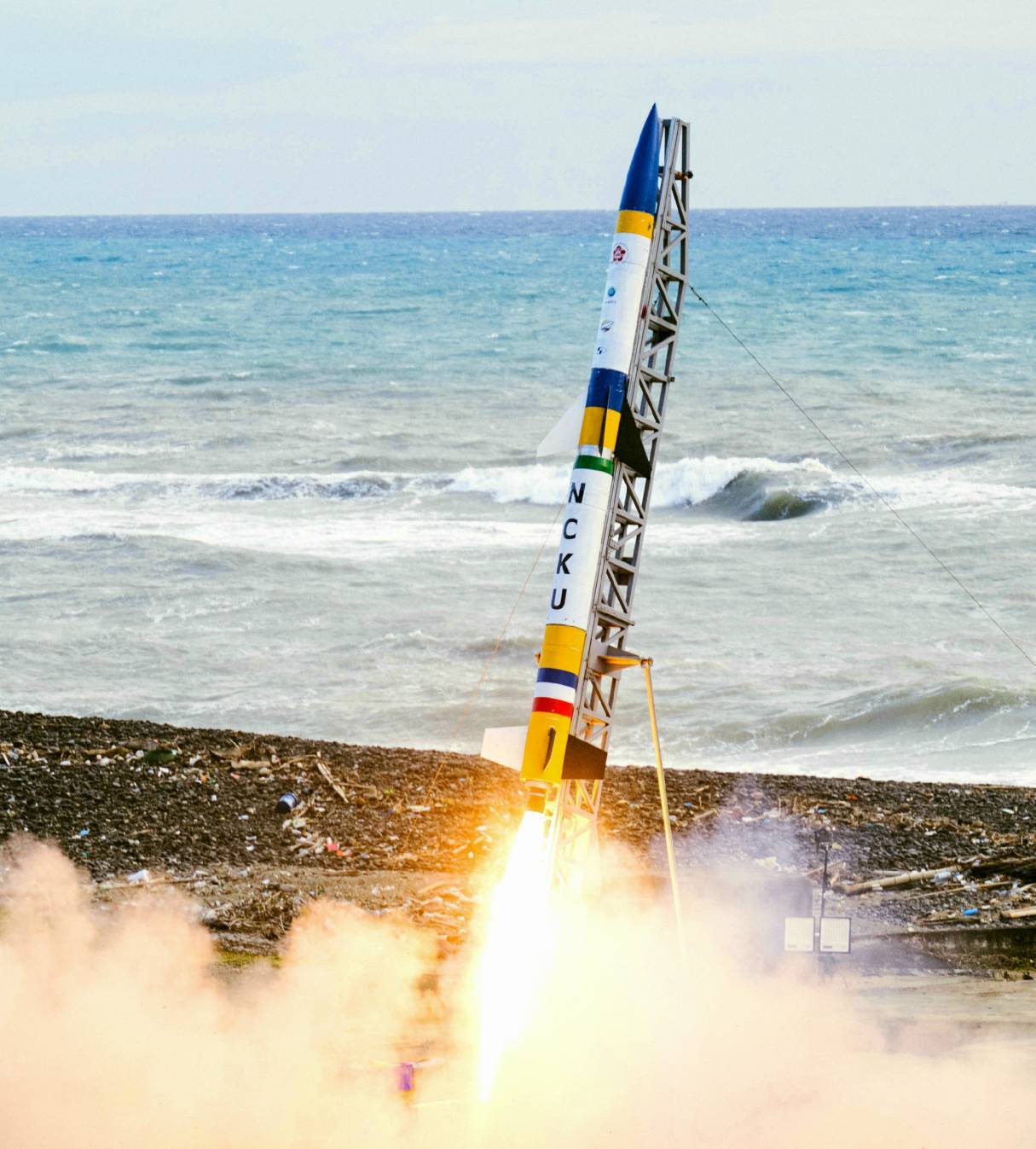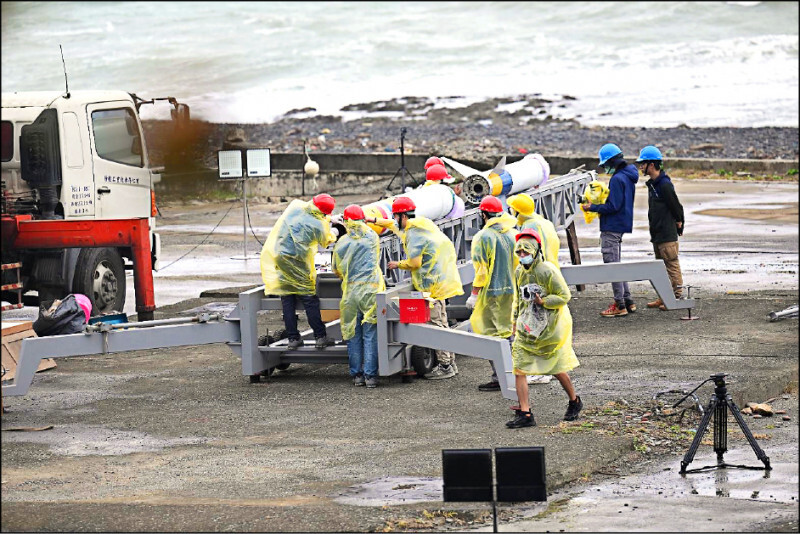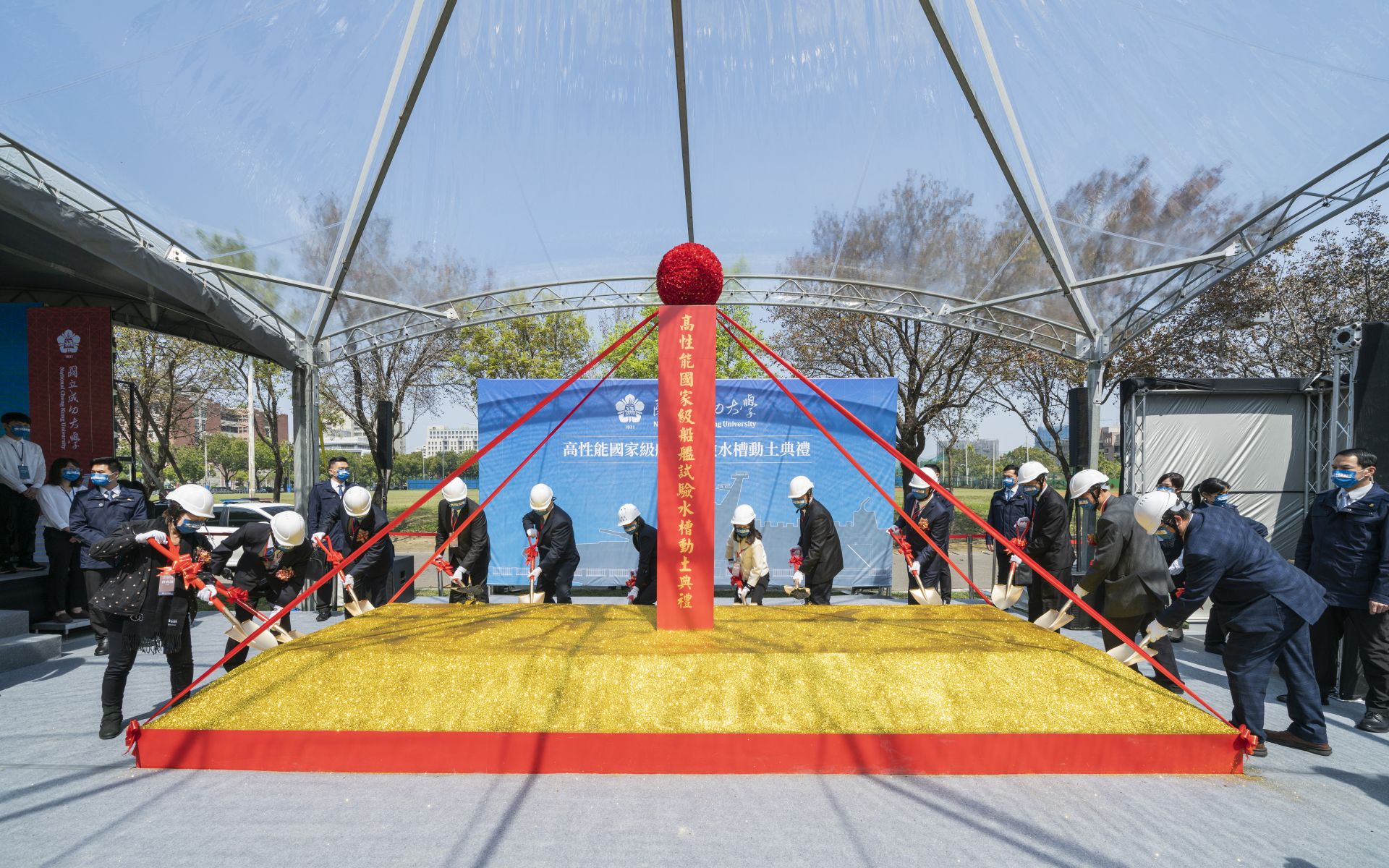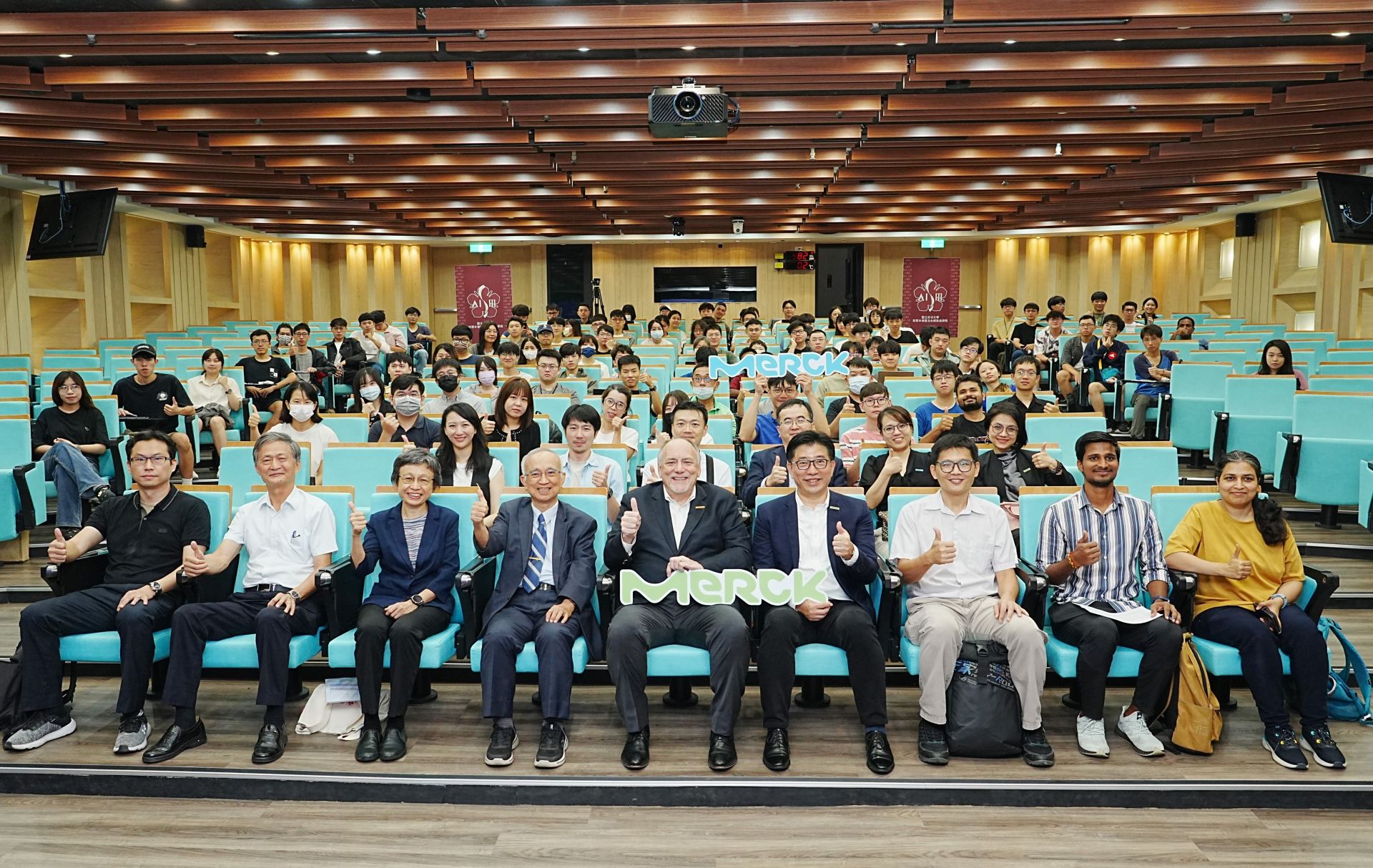SDG9
NCKU's Two-stage Hybrid Rocket was Successfully Launched at the Syuhai Scientific Research Rocket Launch Site
CoProfessor Yei-Chin Chao said that based on the 1,500-kilogram thrust hybrid rocket successfully launched in 2019, after three years of research and improvement, major breakthroughs have been made in engine development, component design and manufacturing, disjointed mechanism and assembly, and aerial ignition. Moreover, the key components and supporting instruments required for rocket flight, regardless of design, technology and manufacturing, are all from the hands of large teams and Chinese people, and 100% autonomous. In addition to verifying the thruster system, aerodynamic disconnection and high-altitude re-ignition technology of the two rockets, it is also expected to achieve the full tracking of the rocket's high dynamic trajectory through the communication telemetry avionics system and the high-dynamic GPS "INS/GNSS real-time trajectory tracking" system.
In addition, the rocket is also equipped with the scientific "Compact Scintillator Array Detector" (ComSAD) designed by Yi Yang, associate professor of the Department of Physics of NCKU, which is the first high-energy cosmic ray detector developed by Taiwan and can be used in sounding rockets and CubeSats to detect the energy and direction of cosmic rays. The sounding rocket mission is mainly to test the basic performance of ComSAD as the basis for future missions, hoping to complete scientific missions such as CubeSats Galaxy at a lower cost in the future.
The National Space Organization of NARLabs of NSTC, which is responsible for maintaining the short-term scientific research rocket launch site, pointed out that the two-stage hybrid rocket independently developed by NCKU has entered the practical stage of breaking through the important key of disconnection and high-altitude ignition. The 1,500 kg thrust class hybrid rocket can meet the design specifications and operate normally, which means that the NCKU team has indeed mastered the principle of thrust amplification, and this research and development result is not easy, and it is expected to carry scientific payloads and obtain more space data in the future.
NSTC said that with the development of the emerging global space industry, Taiwan should seize the opportunity, integrate the academical research circles and the industry, and actively invest in space-related niche industries. NSTC has set up a short-term scientific research rocket launch site in Syuhai to provide legal and safe facilities for space research teams. They will also continue to supervise the National Space Organization, which will soon be upgraded to an independent administrative institution, make proper use of this short-term scientific research rocket launch site, actively link the energy of Taiwan's industry, education and research circles, upgrade the level of space science and technology, cultivate key space science and technology talents, and lead Taiwan to seize the new blue ocean of space.ntent and image credit to National Science and Technology Council.
In addition, the rocket is also equipped with the scientific "Compact Scintillator Array Detector" (ComSAD) designed by Yi Yang, associate professor of the Department of Physics of NCKU, which is the first high-energy cosmic ray detector developed by Taiwan and can be used in sounding rockets and CubeSats to detect the energy and direction of cosmic rays. The sounding rocket mission is mainly to test the basic performance of ComSAD as the basis for future missions, hoping to complete scientific missions such as CubeSats Galaxy at a lower cost in the future.
The National Space Organization of NARLabs of NSTC, which is responsible for maintaining the short-term scientific research rocket launch site, pointed out that the two-stage hybrid rocket independently developed by NCKU has entered the practical stage of breaking through the important key of disconnection and high-altitude ignition. The 1,500 kg thrust class hybrid rocket can meet the design specifications and operate normally, which means that the NCKU team has indeed mastered the principle of thrust amplification, and this research and development result is not easy, and it is expected to carry scientific payloads and obtain more space data in the future.
NSTC said that with the development of the emerging global space industry, Taiwan should seize the opportunity, integrate the academical research circles and the industry, and actively invest in space-related niche industries. NSTC has set up a short-term scientific research rocket launch site in Syuhai to provide legal and safe facilities for space research teams. They will also continue to supervise the National Space Organization, which will soon be upgraded to an independent administrative institution, make proper use of this short-term scientific research rocket launch site, actively link the energy of Taiwan's industry, education and research circles, upgrade the level of space science and technology, cultivate key space science and technology talents, and lead Taiwan to seize the new blue ocean of space.ntent and image credit to National Science and Technology Council.

NCKU successfully launched a two-stage hybrid rocket on November 8 at Pingtung County, Taiwan

The team is led by Yei-Chin Chao, chair professor of the Department of Aeronautics and Astronautics of NCKU

SDG9From Nation's First to the World's Top: President Tsai Attends NCKU's Groundbreaking Ceremony for National Ship Model Test Basin
View more
SDG9The "Merck Lecture Hall" at NCKU delves into the crucial role of material intelligence in advancing semiconductor technology.
View more![[Phoenix Lecture] Making Design a Force for Change: Taiwan Design Research Institute Director Chi-Yi Chang](/userfiles/images/20250109022557576.jpg)



















